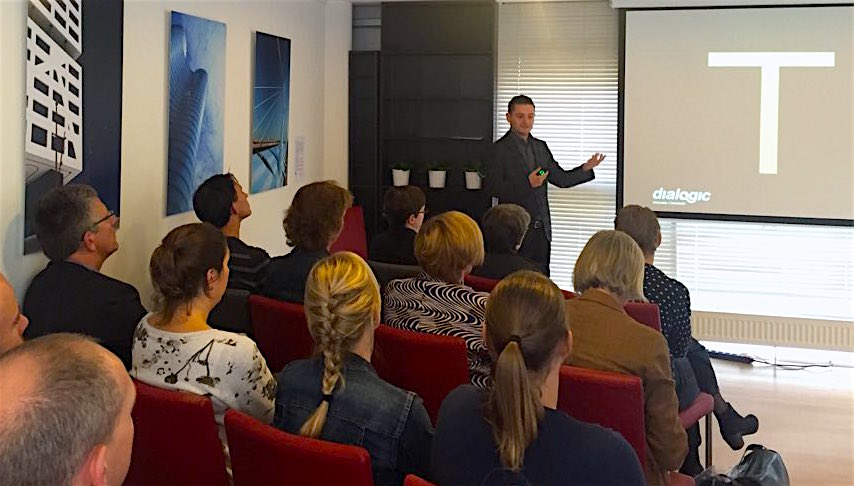
Why you need T-shaped professionals to use big data for policy
5-11-2015

Big data provides unprecedented opportunities throughout society, but in practice, embedding innovative big data sources and methods in a governmental context is not easy. In a masterclass organised by Dialogic on November 5, 2015 and designed specifically for managers and policy makers of governments and (semi-) public organizations, we explore the (potential) impact of big data on policy and policy research, the conditions under which big data can be used and how directors and researchers can implement it. We base ourselves on the practical experience Dialogic has gathered working as a research and consulting firm in big data in recent years, and in the governmental context since its founding.

At this masterclass I spoke on the topic strategies for implementing big data in a policy context. I made a connection between technical opportunities and practical, policy-driven implementation. I presented a framework that makes it easier to reason about data sources versus policy questions, and derive concrete suggestions for application of big data methods.
Organized by Dialogic on November 5, 2015 – DiaLAB
Download the flyer: Masterclass Big Data for policy: using big data to answer policy questions (Dutch)
Read Dialogic’s press release: Dialogic Masterclass Big Data groot succes (Dutch)
Registration: closed, but see this page for follow-up sessions.